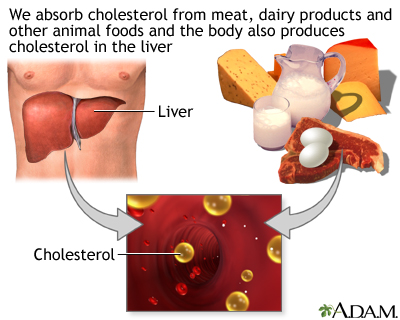
Several studies have shown a link between high triglycerides and heart disease. However, not all experts agree that high triglycerides play a big role. While some may believe that the triglycerides alone do not cause problems, the triglycerides tend to be present along with other heart-related conditions. For example, high levels of triglycerides are often associated with obesity and high levels of "bad" LDL cholesterol, as well as a low level of HDL cholesterol.
There are many ways to reduce or eliminate these types of fats in the blood. The most common way is to eat foods that contain a high content of triglycerides. This is the most common way to lose weight. Increasing your intake of these foods can help lower your cholesterol levels. You may also want to increase your protein intake. It is essential to eat a balanced diet full of fruits and vegetables.
If you are concerned about high triglycerides, your doctor may prescribe a heart-healthy diet with less saturated fats and added sugars. In addition, it is important to maintain healthy levels of blood pressure and diabetes and lose weight if necessary. If you have a high cholesterol level, you may need medications to lower your levels. Those who are at risk for cardiovascular disease should consult a medical provider to get the right prescription for treatment.
Getting proper medical advice is essential if you want to improve your health and prevent high blood triglycerides from leading to cardiovascular disease. If you are unsure of your condition, contact a qualified health provider and get a blood test to determine which type of lipids you have. These tests can help you make the best choices for your health. If you have any questions about your condition, don’t hesitate to ask your doctor for guidance.
In addition to triglycerides, high triglycerides can also be a sign of metabolic syndrome. This is a combination of high triglycerides and low HDL ("good") cholesterol, which increases the risk of heart disease, diabetes, and stroke. If you have these levels, you should talk to a doctor. Although high triglycerides do not cause symptoms, they are a sign of a larger problem.

The most common form of fat in the body is triglycerides. They are stored as fat in the body and circulate in the blood. They are found in most foods and are linked to high cholesterol levels. If you have a high triglyceride level, you are at risk of heart disease. If you have high triglycerides, you should consider changing your diet and avoiding these foods.
People with high triglycerides should take care of their health by eating a heart-healthy diet and getting regular physical activity. They should also avoid foods that are high in saturated fats and trans fats. These foods are high in cholesterol and should be avoided in any case. If you are at risk for these health issues, talk to your doctor to find out if your high triglycerides are causing you problems.
The most common type of high blood triglycerides is the fat found in triglycerides. These types of fat are used by the body for fuel, but high triglyceride levels are associated with an increased risk of heart disease. These types of triglycerides are part of a syndrome known as metabolic syndrome and are usually inherited. They can also be borderline high in some people and have no symptoms.
Unsaturated triglycerides are the most common type of high-fat fat in the blood, and most people have high LDL cholesterol levels. Fortunately, this type of fat does not affect your health. They can only increase the risk of heart attack and stroke. But you can lower your LDL cholesterol levels with a healthy diet. The good news is that dietary changes can lower your cholesterol levels. So it’s important to make sure you’re getting the right type of fat.
You can control high triglycerides by limiting the amount of unhealthy fats you eat. Reducing your intake of saturated fat can be beneficial to your health. If you are overweight, reducing your saturated fat intake and the recommendations on iHealzy may help you lose weight, which can lower your LDL levels. If you have too much LDL, you may need to take medication to control your triglyceride levels in your blood. If the problem persists, the doctor will first try lifestyle and dietary changes.